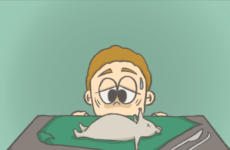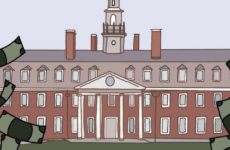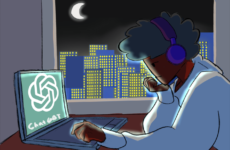Immediately following Choate’s early 1980s cocaine scandal, the school’s drug-abuse policy changed sharply. Suddenly, any student who possessed any kind and any amount of illicit drug would be quickly and decisively expelled. As the student handbook puts it, “Rules regarding purchase, possession, distribution, or use of these substances are essential to maintaining a healthy academic and social environment.”
The early 1980s was more than thirty years ago. How essential is it that all students be removed from the school for drug use or possession?
We, as seniors, have awoken several mornings and found that friends whom we’ve spent late nights studying with, playing sports with, joking with, and taking classes with have suddenly disappeared. We believe that this sudden separation poses a greater threat to social life on campus than their presence did.
Furthermore, there are plenty of examples of student behavior, both on and off campus, that pose a greater threat to Choate’s “academic and social environment” than making a one-time mistake of experimenting with drugs. And these acts are not punished as severely.
The punishment for honor code violations can be as gentle as a censure, despite such actions potentially impacting the grades of other people in a class in relation to the cheater by negatively altering the curve. Personal integrity violations, such as the use of racial epithets, and physical violence, such as punching another student, can be met with as little as counseling or probation despite the far greater potential of their harm. Even the language around the possession of weapons — of any category — is less definitive than the language around drug policy, stating that it is merely likely that students will be dismissed for possession of a weapon, in contrast to the definitive expulsion that comes with being caught with drugs.
The use of marijuana on this campus should not be a call for the administration to kick people out: it’s a call for understanding the different circumstances that exist among the varying instances of marijuana use at Choate. Choate’s zero-tolerance policy was reactive, and now begs for greater reflection.
Instead of avoiding this call to educate and guide Choate students in the right direction when they do encounter these drugs, the school should accept the challenge and not shy away from its duty of preparing able, educated individuals for the real world.
Currently, Choate will expel the transgressive student but do nothing in terms of the underlying problem. The student’s problem is not going anywhere, or, if it is, certainly not because of Choate’s counsel. Likely, the issue will cause problems at whatever new institution the expelled student finds himself or herself.
Meanwhile, the student is forced to believe there is something imperfect about himself, something that even the best schools in the country can’t fix. All the love and guidance this school promised that student is swiftly replaced with a void of uncertainty — about one’s character and innate worth. This detachment from a community is only one of many harmful effects that the student may experience.




